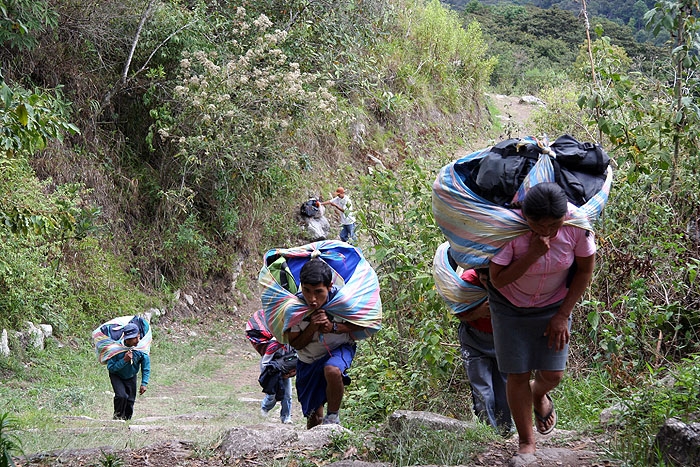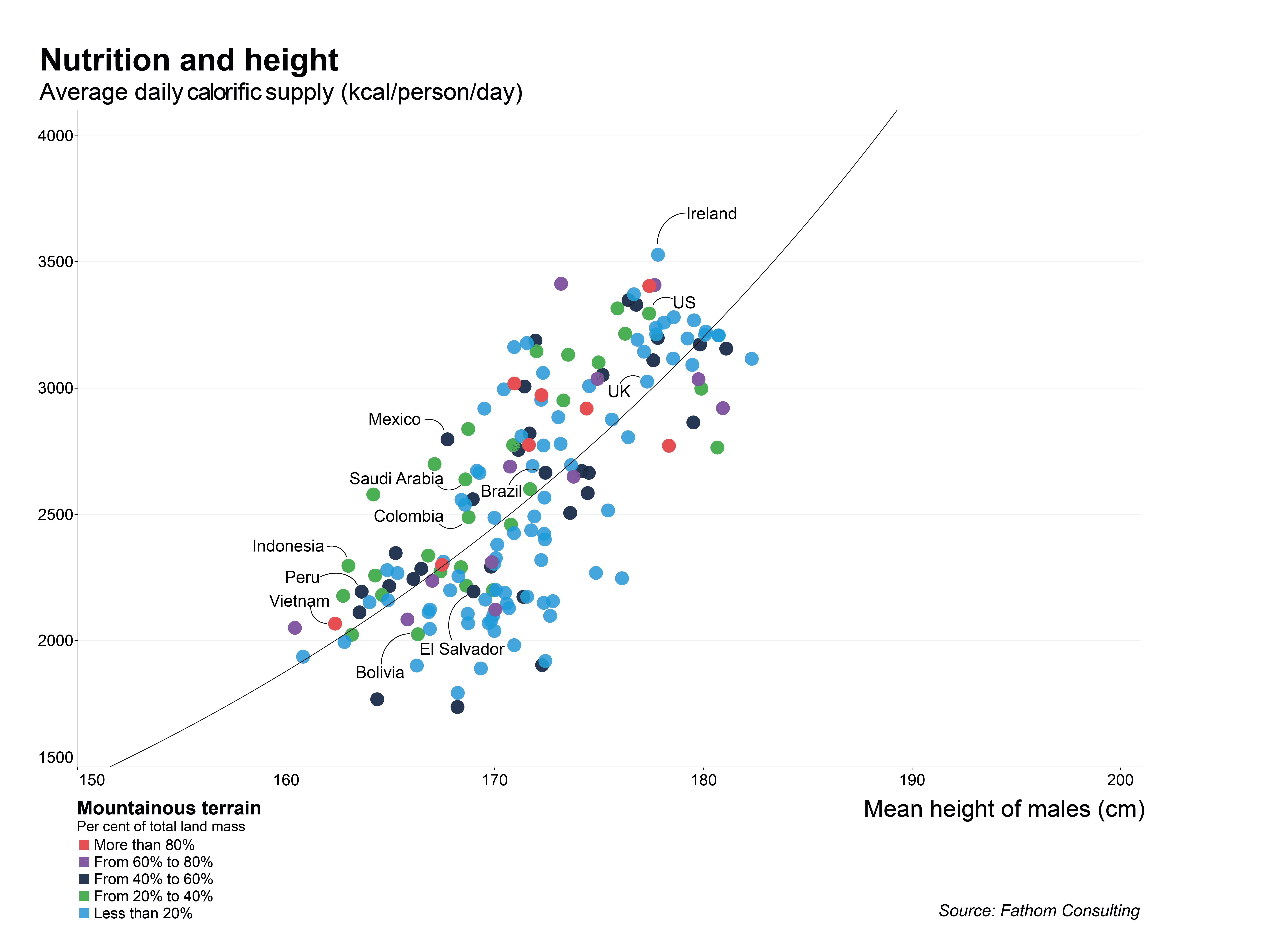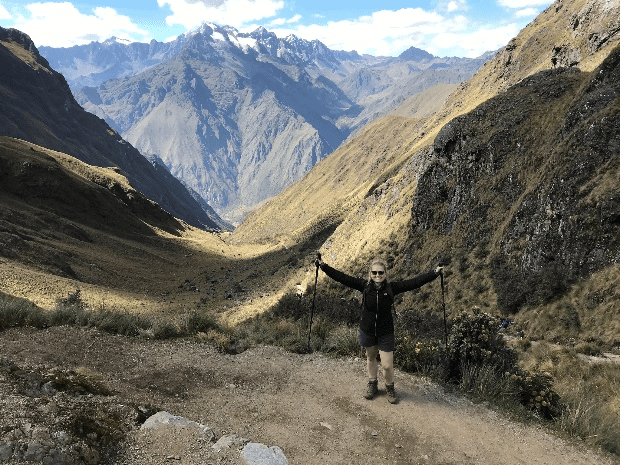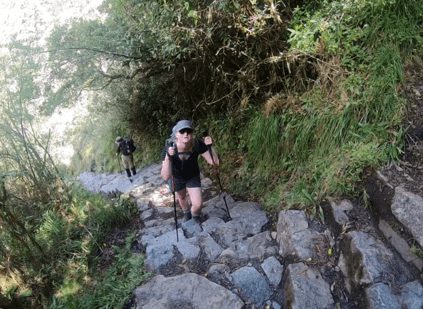
This article is a re-post from Fathom Consulting's Thank Fathom its Friday: "A sideways look at economics". It is here with permission
On a recent trip to Peru, spent tackling the gruelling Inca Trail to the once-lost citadel of Machu Pichu, I found myself baffled by a more elementary matter than the life-changing experience of self-discovery that I had anticipated.
Instead, I discussed, at length, the optimum height, or — more specifically — leg length, for tackling the mountainous Andean trail with my fellow hikers!
Despite many passionate debates, we couldn’t reach a consensus on whether longer or shorter legs were best. The answer, however, seemed to be running past us every few minutes with a 35kg backpack and highly inappropriate footwear. The porters that accompany each group on the Inca Trail seem almost superhuman. Given a written description of their duties and the way they conduct them, one would imagine an Adonis-esque figure, tall and muscular with incredible endurance.
The reality, however, is that the superhumans that carried all of our equipment and supplies for the four-day hike were between 5ft and 5ft 3in, and lean. They tackled the uphill sections at a steady pace, only slightly faster than us muggles (don’t get me wrong, that’s no mean feat when you’re lugging the equivalent of a lanky ten-year-old on your back). But it was the downhill stretches where they really came into their own, running down near vertical paths on which one misstep makes the difference between life and death.
So, what gave them such an advantage, or was it all misplaced confidence?
Our porters, all of whom were from local villages, were gifted (we decided and later discovered to be true) with evolutionary advantages, such as barrel-shaped chests. Housing larger than average lungs and hearts, this enabled their bodies to function properly even at higher altitudes where oxygen levels are lower. Being vertically challenged myself, and sick as a dog with the effects of altitude, I can confirm that this is not a benefit of being short!
Needless to say, your mind does strange things when starved of oxygen, as we all were by day two of the unrelenting journey through Dead Women’s Pass, which peaks just shy of 14,000 ft. This, on reflection, resulted in a series of conclusions, several questionable, others less so.
For example:
That the shorter your stature the lower your centre of gravity — centuries of ‘survival of the fittest’ meant the porters could tackle the sharp twists and turns of the trail with ease.
That it was nothing to do with genetics or evolution and instead reflected the nomination of the porters by the local village elders which masked underlying variation within the population, or that it was due to childhood nutrition.
That there was a secret pattern to the Incan paving stones, ruins and tunnels, and, a bit like having a computer game cheat code, being in the know enabled you to skip forward two levels.
That running at a certain tempo and gait helped with foot placement.
Despite flexing my magic eye skills (perfected in the 1990s when those 2D posters with a hidden 3D image were vogue), I struggled to see any pattern or configuration to the winding paths that led us through valleys and up over the cloud forest. The running trick was even less successful, and hastily abandoned after a near-death experience (no exaggeration).
So, to what extent do nutrition and evolution account for performance on the trek? If it’s the latter, meaning that my shortness should have been an advantage, then I have only my donut-eating, milkshake-drinking self to blame, as I should have been flying round the trails with the porters, rather than huffing and puffing on my way.
A recent study by Harvard Medical School actually detected a gene variant that causes a reduction in some Peruvians’ height by more than 2cm, suggesting that ‘survival of the fittest’ may have favoured shortness. But, as highlighted in the chart below, height and nutrition demonstrate a more obviously positive correlation, reflecting the fact that calorific intake, particularly during childhood, is an important factor for growth. Indeed, there is a less obvious pattern between height and the proportion of mountainous area within a country, represented by the colour of the dots in the chart below.

So, while it wasn’t a journey of self-discovery in the traditional sense, it was in another! And it turns out that my height also has consequences here in the UK, albeit less favourable ones. A wealth of research suggests that taller men and women tend to be better off. For women, being slim also helps. Notably, those with a ‘height premium’ are not only more likely to be an entrepreneur, but to enjoy higher wages and greater work/life satisfaction. According to the findings of one study, my hourly wage rate would be 1.6% higher if I were just two inches taller (i.e. average height).
On that somewhat depressing note, I’m off to Peru to live out my days being worshipped as a ‘leggy blonde’.
Before:

After:

Jonanna Davies is an economist at Fathom Consulting in London, England. This article is a re-post from Fathom Consulting's Thank Fathom its Friday: "A sideways look at economics". It is here with permission

We welcome your comments below. If you are not already registered, please register to comment
Remember we welcome robust, respectful and insightful debate. We don't welcome abusive or defamatory comments and will de-register those repeatedly making such comments. Our current comment policy is here.